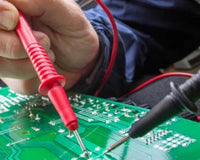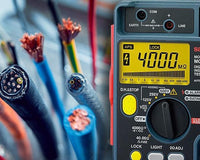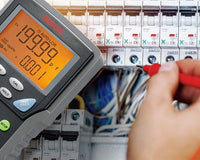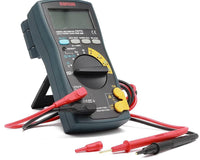-
Identify the Symptoms: Start by identifying the symptoms of the problem. This could be anything from a dead battery to a malfunctioning starter. Pay attention to any strange sounds, smells, or other indicators that could help pinpoint the issue.
-
Check the Battery: A dead or weak battery is a common cause of electrical problems. Use a multimeter to test the voltage of the battery. If the voltage is low, the battery may need to be charged or replaced.
-
Check the Fuses: A blown fuse can cause a variety of electrical issues. Check the fuses in the fuse box using a multimeter. If a fuse is blown, replace it with a new one of the same amperage.
-
Check the Alternator: The alternator is responsible for charging the battery and powering the electrical system. Use a multimeter to test the alternator's output voltage. If the voltage is low or fluctuating, the alternator may need to be replaced.
-
Check the Starter: The starter is responsible for cranking the engine. If the engine won't start, check the starter using a multimeter. If the starter is malfunctioning, it may need to be repaired or replaced.
-
Check the Wiring: Faulty wiring can cause a variety of electrical problems. Check the wiring for any signs of damage, corrosion, or loose connections. Repair or replace any damaged wiring as needed.
-
Seek Professional Help: If you are unable to diagnose or repair the issue, it may be necessary to seek professional help from a mechanic or auto electrician. They have specialized knowledge and equipment to help identify and fix the problem.
Recommended Meters for Automotive Diagnostics: DCM400AD | Clamp Meter for Automotive Maintenance & Digital Multimeter Functions
DCM400AD | Clamp Meter for Automotive Maintenance & Digital Multimeter Functions DCM600DR | Clamp Meter for Automotive Hybrid / Electric Vehicle + DMM Functionality
DCM600DR | Clamp Meter for Automotive Hybrid / Electric Vehicle + DMM Functionality
 TA55 | Analog Multimeter - 30A Range for Automotive Applications
TA55 | Analog Multimeter - 30A Range for Automotive Applications






